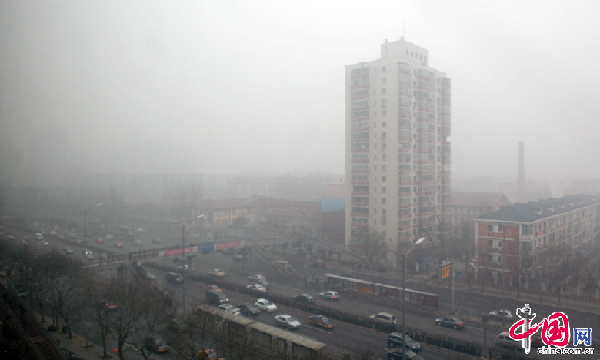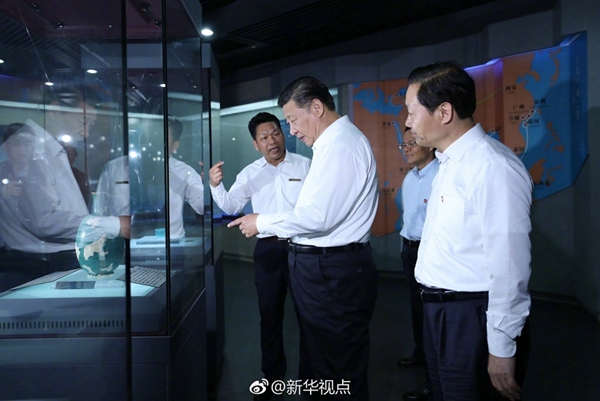 |
|
Heavy smog hits Beijing. [Photo/China.org.cn]
|
In a show of anti-pollution resolve, China has begun shaming rogue firms that had allegedly polluted environment and even blocked government inspections.
The Ministry of Environmental Protection made details of the first case public over the weekend and later listed others. Obstruction of law enforcement was found to be common.
In the update, three more cases were reported in provinces of Hebei, Henan and Shandong where the central government had dispatched the largest air pollution inspection team in history, involving 5,600 people.
In Liaocheng city, inspectors were locked out of a steel company that had allegedly discharged excessive waste water.
In Xingtai, a city with one of the worst air quality records, the inspection team’s credentials were taken away by force.
In Puyang city, a textile factory halted operations and ignored inspectors when they came knocking.
Altogether, six people were detained for allegedly obstructing inspectors in these cases.
“It is not just to warn offenders. The action shows inspectors will leave no stone unturned,” said Fu Qiang, an environmental lawyer.
China is fighting an uphill battle against pollution. Air pollution, particularly smog, often occurs in north China in winter. A high concentration of heavy industry, use of coal, growth of private car use and climate change are all cited as causes. The battle will not be won without enforcing emission limits on factories.
In early April, 28 teams were sent to cities around Beijing to find polluters. In less than three weeks, the teams checked 405 firms and found 286 of them did not comply with national environmental standards.
The current furor only emerged after the manager of a clean energy firm in Shandong locked up inspectors for an hour. Lyujie Environmental Protection and Energy Saving Technology was accused of using an obsolete boiler and lacking proper emission treatment facilities, resulting in dust and noise.
When inspectors visited last Saturday, the company’s general manager Wang Kaisheng refused to allow them to look at the plant, claiming that their credentials were fake. He later refused to allow them to leave the premises. The firm was founded by retired Shandong provincial official Xue Hongmin in 2005 to produce energy-saving boilers, coolers and other environmentally friendly products.
Ma Jijiang, a local environmental protection official, said the firm has not obtained permit for its boiler. The boiler has since been removed. Further investigation is underway to decide if there was any collusion between government officials and the company.
Jinan-based lawyer Cui Lianwei advises enforcers to beware of local protectionism. “Protectionism in some areas is the key cause of poor enforcement in environmental protection, and joint inspection efforts will help improve the effect and efficiency of enforcement,” he said.


![Students from a primary school in An County in southeast China's Jiangxi Province hold books donated to them by China's Publishers Association on April 14, 2017.[Photo: people.com.cn]](http://images.china.cn/attachement/jpg/site1007/20170420/b8aeed9906a71a625cb014.jpg)
![People read books in a public library at Gongshu District of Hangzhou, capital of east China's Zhejiang Province, Dec. 28, 2016.[Photo: Xinhua/Long Wei]](http://images.china.cn/attachement/jpg/site1007/20170420/b8aeed9906a71a6255c80f.jpg)